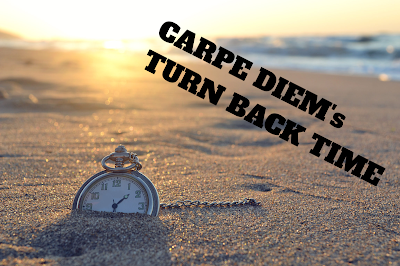!! Open for your submissions next Sunday October 13th at 7:00 PM (CEST) !!
Dear Haijin, visitors and travelers,
Welcome at a new weekend meditation here at our wonderful Haiku Kai were we are celebrating our 7th birthday. Last weekend I introduced a special feature for this festive month "Turn Back Time". In this special feature I will take you back in time ... or in other words "I will turn back time" into our amazing CDHK history.
This week I love to "turn back time" to another wonderful special feature we have had here at our wonderful Haiku Kai. In October 2013 I started our special feature "Revise That Haiku" with a haiku by Taigi (1709-1771). Taigi was a contemporary and friend of Buson. I will first give the haiku (including the Japanese Romaji) and then I will give the description of the moment which led to the haiku.
umi ikete tsuki to mo wabin tomoshikage
arranging the plum-flowers,
I would enjoy them in the light of the lamp,
as if in the moonlight
© Taigi (1709-1771)
The brevity of haiku is not something differnt from, but a part of the poetical life; it is not only a form of expression but a mode of living more immediately, more closely to life as may be illustrated in the above haiku by Taigi.
 |
| Flourishing Plum Blossoms in the Moonlight |
The original of the above haiku is even more difficult, literally: "arranging the plum, as if the moon, I would savour, lamp-light" (Wabiru translated 'enjoy', 'means' to live a life of poetry in poverty). The poet has arranged the flowers in a vase, and wishes to see them in the light of the moon, but there being no moon, he lights the lamp instead, and adds its light to the poetry and the beauty of the flowers.
The whole of the poet's life is shown in this action and the essence of the verse in wabin. This poverty, this asceticism of life and form in haiku, this absence of luxury and decoration finds its philosophical and transcendental expression in Emanuel Swedenborg's (a Swedish philosopher who lived from 1688 until 1772) "Heaven and Hell" (paragraph 178); after he has described the garments of the angels, some of which glow with flame, some of which shine with light, he adds:
"But the angels of the inmost heaven are not clothed".
Well ... with the desciption of the moment I think you can revise that haiku ... so ... "break a leg", have fun, be inspired and share your revised Taigi-haiku with us at Carpe Diem Haiku Kai.
Ofcourse I than gave it a try, so here is the "revised" haiku by Taigi created by me, your host:
shadow on the wall
flourishing plum blossom
in the moon light
© Chèvrefeuille (October 2013)
Enjoy your weekend. This weekend meditation is open for your submissions next Sunday October 13th at 7:00 PM (CEST) and will remain open until October 20th at noon (CEST). Have fun!


No comments:
Post a Comment